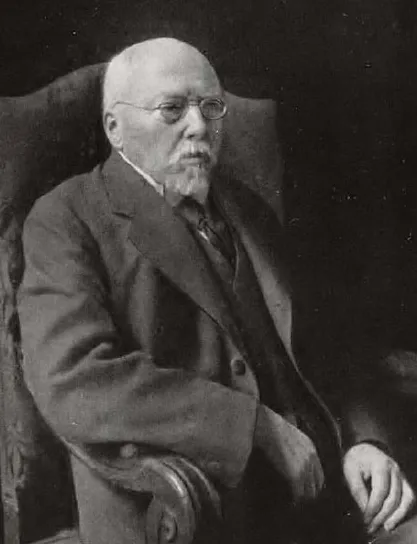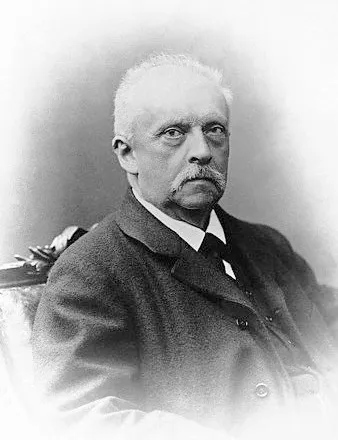
Full Name: Maria Montessori
Birth Year: 1870
Death Year: 1952
Nationality: Italian
Profession: Physician and Educator
Famous For: Developing the Montessori Method of education
1870 – Maria Montessori, Italian physician and educator (d. 1952)
The Early Years and Education
Maria was born into a well-educated family, and from an early age, she showed great potential. She pursued an education in engineering and later shifted her focus to medicine, graduating from the University of Rome in 1896 a revolutionary step for women at the time. Her medical training led her to work with children with disabilities, which sparked her interest in understanding child development.
Foundational Work and Development of the Montessori Method
In 1907, Maria opened her first school, the Casa dei Bambini , in a low-income neighborhood of Rome. Here, she began to implement her educational philosophies. Unlike traditional educational methods, Montessori focused on child-led learning, where children are encouraged to choose their own activities in a prepared environment that promotes exploration. This approach respects individual learning paces and fosters a love of learning.
Core Principles of Montessori Education
Maria Montessori’s method is based on several core principles:
- Respect for the Child: Montessori believed that children should always be treated with respect, and their innate curiosity should be fostered.
- Prepared Environment: The classroom setting is designed to support independent learning, with materials and activities available at various developmental levels.
- Hands-on Learning: Children learn best through interaction with their environment, engaging with tangible materials rather than passive instruction.
- Self-Directed Activity: Montessori education facilitates autonomy, enabling children to pursue their interests and learn at their own pace.
Global Impact and Recognition
Maria Montessori’s work quickly gained international recognition. By the early 20th century, Montessori schools were established across Europe and the United States. Her teaching methods were embraced worldwide, influencing educators and child development specialists. Montessori published numerous books detailing her philosophy and practices, making her a significant figure in educational reform.
Maria Montessori: The Pioneer of Child-Centered Education
In the late 19th century, amidst a backdrop of social change and burgeoning educational reform, Maria Montessori emerged as a beacon of innovative thought in education. Born in 1870 in the bustling town of Chiaravalle, Italy, her early years were marked by an insatiable curiosity and determination. Perhaps her most significant challenge came from societal expectations; women in her era were often relegated to domestic roles. However, young Maria defied convention she pursued her studies with fervor.
After completing her primary education, she enrolled at the Regio Istituto Tecnico where she excelled not only in academics but also stood out as one of the few females among her peers. This was no small feat Montessori's drive was fueled by a desire to become a doctor at a time when female physicians were an anomaly. Despite this daunting environment, she persevered and graduated from medical school in 1896 making history as one of Italy’s first female doctors.
Ironically, it was not within the sterile walls of hospitals that she would leave her most indelible mark; instead, it would be within classrooms that Montessori found her true calling. Shortly after receiving her degree, she began working with children diagnosed with disabilities at a psychiatric clinic in Rome. Herein lay a pivotal moment: witnessing these children’s remarkable capacity for learning sparked an epiphany within Montessori a belief that all children possess an innate desire to learn if given the right environment and tools.
With newfound zeal and armed with revolutionary ideas about pedagogy rooted deeply in observation rather than traditional teaching methods, she developed what would later become known as the "Montessori Method." This approach emphasized child-led learning through exploration and discovery rather than rote memorization or standardized testing a radical departure from prevailing educational practices. In essence, Montessori proposed that education should be tailored to fit each child’s unique developmental needs rather than forcing them into rigid molds.
The journey wasn’t without obstacles; resistance came swiftly from established educational institutions clinging desperately to outdated methods. However, buoyed by success stories from parents who witnessed their children's transformations under this new approach children who blossomed into independent thinkers eager for knowledge Montessori's reputation began to swell beyond Italian borders.
The culmination of years spent refining her methodology arrived dramatically on January 6th, 1907 when she opened the Casa dei Bambini in San Lorenzo district of Rome. It was here that children between three to six years old engaged freely with carefully designed learning materials crafted specifically for tactile exploration a clear contrast against traditional schooling where desks aligned neatly like soldiers waiting for orders!
This groundbreaking institution became an immediate success! Children thrived under this nurturing environment their laughter echoed off brightly painted walls adorned not just with charts or images but filled instead with practical life activities designed to cultivate motor skills alongside cognitive development. Who knows how many lives were transformed during those formative years? Observers noted how students took ownership over their learning experiences they chose their activities guided by intrinsic motivation rather than external rewards!
By 1910 word spread about this unconventional school model across Europe and eventually reached America! There were skeptics aplenty but gradually admiration grew as parents clamored for schools grounded on these principles while educators sought training sessions led by Montessori herself!
Pushing boundaries further still… As World War I swept across Europe like wildfire threatening everything familiar including academic traditions it provided yet another opportunity for innovation! Recognizing urgent needs arising amidst chaos surrounding displaced families fleeing violence led Maria back towards uncharted territory: teacher training programs established globally aimed not just at reproducing existing schools but reshaping them entirely according principles rooted firmly within respect dignity inherent every child!
The Legacy Unfolds
This endeavor yielded fruit far beyond anything initially imagined... By founding organizations such as Association Montessori Internationale (AMI) & hosting international conferences throughout post-war Europe helped solidify foundational beliefs embraced worldwide today! In fact some argue “Montessori” has evolved into synonymous brand associated quality early childhood education reflecting core values equity inclusion respect individual differences among learners...
Marianna Solari-Ruscito reflects on contemporary relevance stating “what worked then resonates now” pointing out how present-day educators grappled inequities exacerbated pandemic shifting focus towards holistic approaches prioritizing emotional well-being alongside academics establishing greater significance recognizing role fostering resilience!”
An Enduring Influence
The influence didn’t end there… As time marched on until 1952 when Maria passed away leaving behind wealth ideas extending far beyond physical walls constructed mere bricks mortar infusing hearts minds all those crossed paths journey together forever enriching lives transforming societies.... Today we stand witness reflection advances made progressive educational frameworks built upon foundations laid early pioneers including exceptional figure like maria montessori...
A Modern Connection
Reflecting today amidst rapid advancements technology virtual classrooms have become norm challenging conventions transforming landscapes traditionally associated formal schooling... Incorporating lessons learned through rich history pedagogies encourages adaptive strategies fostering environments where students feel empowered thrive grow positively contributing society based respect dignity value every individual fosters deep-rooted love lifelong learning!





